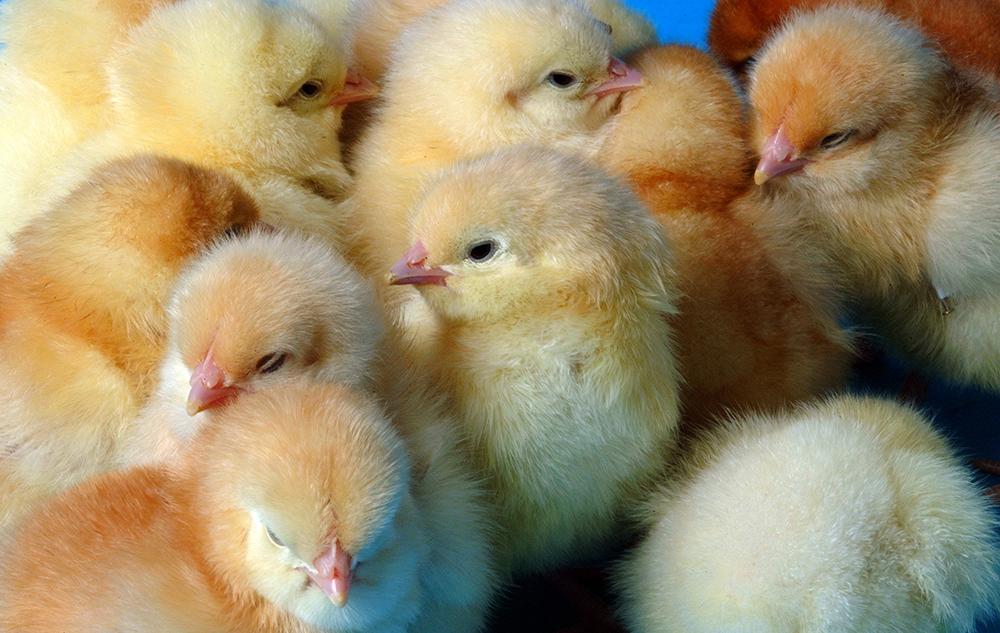



Surrogacy method to aid welfare in poultry research
Learn how frozen reproductive cells can help create a biobank for breeds of chicken used in research.
Scientists will seek to develop a new technology to limit the number of chickens required for research. Their approach will involve freezing chicken reproductive cells, and using sterile surrogates to hatch the required breeds. This method would enable genetic diversity – which helps limit risk of poor health – to be maintained in those chickens created from frozen material.
A team from the Roslin Institute will aim to transfer frozen reproductive stem cells from many individuals of one chicken breed into eggs from sterile surrogate chickens of a different breed.
The hatched offspring from the injected eggs that result will look like the sterile line, but will lay eggs of the transferred breed and retain genetic diversity.
A biobank of breeds used in research would help to reduce the number of research chickens, currently bred in large numbers across the world, needed to maintain a genetically diverse population and prevent problems with inbreeding.
The project is supported by an award of more than £500,000 from the National Centre for the Replacement Refinement and Reduction of Animals in Research (NC3Rs).
Poultry studies
Scientists will optimise how to freeze reproductive cells by studying three breeds of chickens used in research, at the Roslin Institute’s National Avian Research Facility.
The team will then aim to show that a single surrogate parent can lay eggs that come from many individual donor birds. This result will determine the ability to capture the genetic diversity of a chicken flock.
This will validate the development of biobanks for flocks of poultry for research purposes, which will limit the number of animals bred for use in this way. The method could also be used to preserve rare chicken breeds.
The adult surrogate birds will have only their reproductive cells changed to the genetics of the transferred cells, and therefore will be largely unaffected, with the exception that their offspring will be a different breed of chicken.
Their project requires new insights into avian reproduction, which differs considerably from mammalian systems. Researchers hope to recreate the practices applied in other research species, where reproductive materials are frozen to secure future availability while reducing the numbers of animals used in research, and preserving the genetics of the species.
Such an approach can also avoid the random genetic changes that can occur naturally between generations of animals bred for research, which can lead to unhealthy animals.








